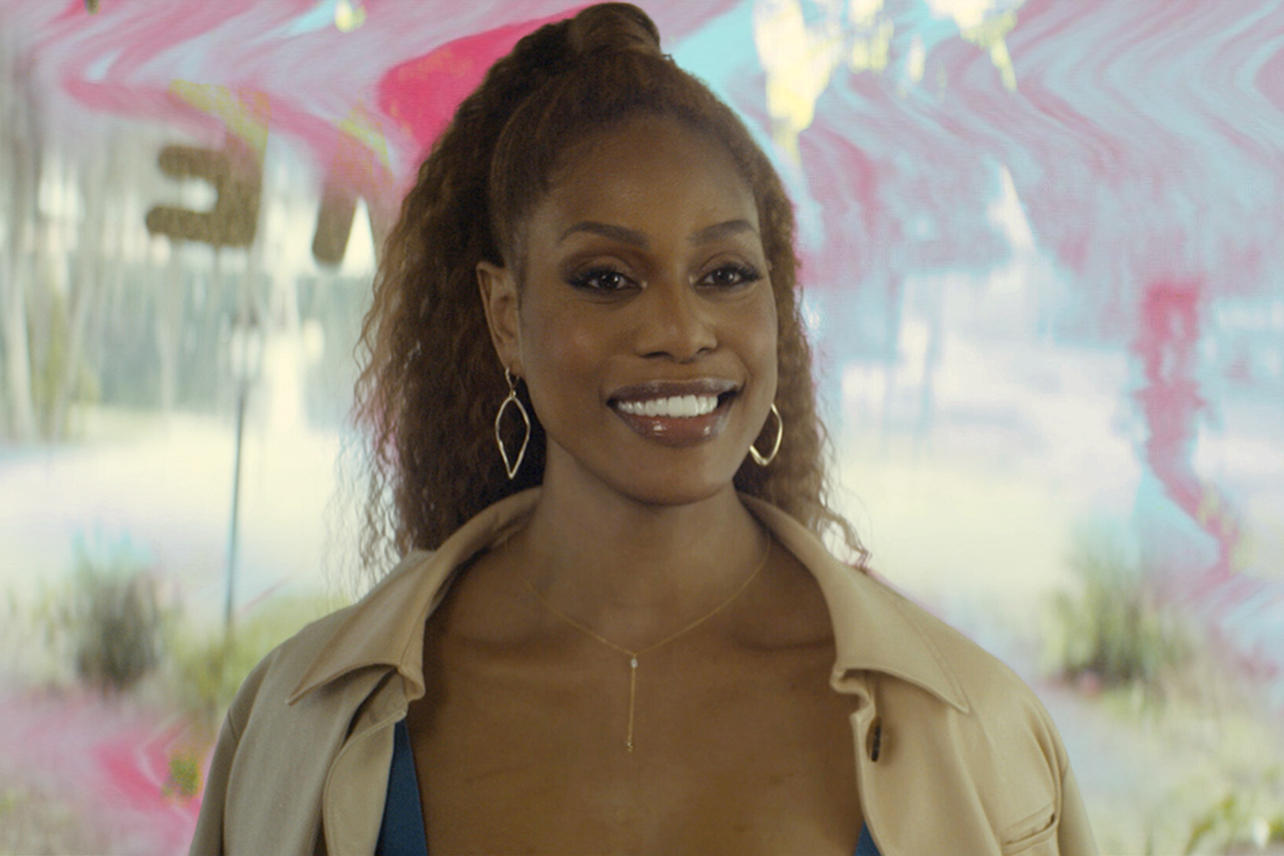In 1999, Halle Berry starred in the title role of the film Introducing Dorothy Dandridge. The biopic covers the life of Dandridge, the first Black woman in the United States of America to be nominated for an Academy Award for Best Actress.
Introducing Dorothy Dandridge was not a huge hit, but it does represent an important step for two women. It's the first teleplay written by the now-legendary Shonda Rhimes. And, of course, it's almost prophetic for Halle Berry, who would go on to win Best Actress at the Oscars only a few years later for Monster's Ball.
Introducing Dorothy Dandridge is a big deal for another young woman who has nothing to do with the movie but is very much inspired by it: Laverne Cox. In an interview with CBS Mornings, Cox talks about the influence Berry's success had on her.
"I remember her producing that film and that changing her career," Cox explains. "And I was very young in the '90s, in my twenties still, dreaming of a career of being an actor. And I [realized] you can take control over your career."
Cox is not on CBS to talk about Berry. She's there to promote her new sitcom: Clean Slate. The series partners her with veteran comedian George Wallace and is about a trans woman returning to her home town of Mobile, Alabama. Her father (played by Wallace) has no idea his child is a trans woman and the conceit of the series focuses on the two of them learning how to live with one another again.
Cox has produced a number of reality series and documentaries, but this is her first time both executive producing and starring in a scripted comedy series. And while not the first sitcom to star a both a trans character and trans producer (that distinction belongs Bilal Baig and their Canadian series Sort Of), Clean Slate is the first half-hour comedy in the United States to both star and be executive produced by a trans Black woman. And unlike Sort Of, Clean Slate isn't a story of discovering one's transness. Cox's character Desiree is fully formed in that regard — it's everything else she's still trying to figure out.
Clean Slate also holds the dubious honor of being the first trans sitcom under the second Donald Trump administration. And depressing though that is, it's impossible to watch the series without thinking of the poisonous ecosystem it lives inside.
In the weeks leading up to the premiere of Clean Slate, transgender Americans have been under a constant onslaught by the president. In just over two weeks, there are already Executive Orders which: take away the right to change legal documents to reflect correct gender, create federal bathroom bans, attack schools who acknowledge the existence of gender variant children, disallow trans women from partaking in sports, and ban gender-affirming care for all trans people under the age of 19.
You won't see any of that reflected on Clean Slate. And that is because, despite its 2025 launch date, the series' conception and subsequent production go way back to 2017. Laverne Cox's co-star George Wallace (who plays her father on the new series) pitched legendary television producer Norman Lear on the idea of a Sanford and Son reboot. In an interview with the Los Angeles Times Wallace explains that Lear wasn't interested in that angle. "Get out of here, come back with a twist," Lear apparently said. That twist came thanks to Laverne Cox and Clean Slate co-creator Dan Ewen. With Cox on board, Lear suddenly took interest and got on board, too.

Even by television standards, Clean Slate had a very long gestation period. The show's earliest mention dates back to January 2020 when it was announced for NBC's streaming service Peacock. Then in 2021, the show was announced as in development with Amazon under its IMDb TV brand. Finally in September 2022, Clean Slate got its 8-episode season order after IMDb TV rebranded to Freevee.
By late 2022, the narrative on trans people was well on its way to being dominated by anti-trans voices. And so it's perhaps not a surprise that Clean Slate hasn't found its way to release until 2025. If anything, it's surprising to see it released at all.
But Clean Slate is here and everything about it is noteworthy, from its promotion to the series itself.
Right now, like so many trans people, Laverne Cox is balancing two very opposing ideas albeit on a larger stage. When she's asked what trans people should be doing as Trump's administration continues its onslaught, it's not uncommon for Cox to answer with two words: be stealth.
Her notoriety makes it impossible for her to hide, but Cox is of the opinion that, for many trans people, hiding their identity may be the best path to survival. And that's an especially shocking thing to hear from the woman who graced the cover of Time Magazine's famous "Transgender Tipping Point" issue over a decade ago. Cox stood tall as proof that there's space in the world for trans people to live and breath free.
And yet, coexisting with some trans people considering stealth as maybe their least horrifying option, there is also Clean Slate, a show set in a world where people who hate trans people for being trans are in the extreme minority. Desiree finds love and acceptance with her father, even when he struggles with something like using correct pronouns. In fact, almost the entire community in Clean Slate's version of Mobile, Alabama accepts Desiree without fuss. She's a mentor to a young girl. There's romantic tension. There's humor — just like any sitcom.
"We live in an environment where trans people have been so dehumanized relentlessly for years," Cox says talking with CBS. "And in this narrative we see a flawed, human trans woman. And my hope always as an artist is for people to see the humanity of the characters I play. And I hope they laugh. The show feels like a warm hug to me and I feel like we need that right now."
Trans people have a long fight ahead. There have already been incredibly dark days for the community and there will be more of those in the years to come. And yet here is Clean Slate, a situational comedy with a perfectly ordinary concept save for one character's transness — and even that is treated as normal.
In 2018, Norman Lear, George Wallace, Dan Ewen, Laverne Cox, and NBC Universal saw Clean Slate as worthwhile. In 2018, the world was tipping towards justice for trans people. Clean Slate is set in a world where that justice, like Desiree, simply and unquestionably exists.
Dorothy Dandridge didn't win an Academy Award for best actress, but Halle Berry did. The first Black woman to do so. And here is Laverne Cox, the first Black trans woman to executive produce and star in a sitcom.
Clean Slate is a warm hug because it reminds us that a world where trans people breathe free is always possible. We were there. We will be there again. If you ever forget that, you can watch Laverne Cox play Desiree, a messy woman with a father who loves her unconditionally and a town who not just wants her, but needs her. Clean Slate, in its own way, is a reminder of what we are fighting for – and that the fight can be won.






